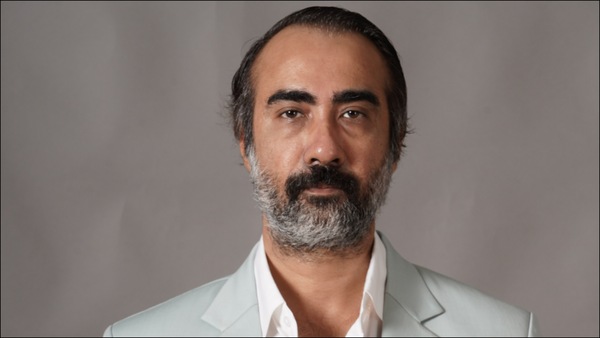Exclusive! Ranvir Shorey: If there were no OTT platforms, I would be bankrupt
Ranvir Shorey also gave his thoughts about the change in the narrative of star power owing to the rise of OTT platforms.

Last Updated: 04.20 PM, Oct 19, 2021
Ranvir Shorey, in his career of more than two decades, has shown his acting prowess across mediums. In the past few years, the actor also carved a niche for himself on OTT platforms. His first outing was the 2018 release Rangbaaz on ZEE5. Currently, Shorey is a part of the SonyLIV series Tabbar which dropped on Friday, October 15, 2021.
Ahead of the release of the series, OTTPlay caught up with the talented actor for a quick chat. The actor spoke about his criteria for zeroing down on a role, debate over streaming censorship, changing narrative of star power, and more.
Excerpts below:
You have been a part of OTT titles since the time this content was considered an underdog. What is it that you think makes this medium different from others?
I see streaming platforms growing, which I'm happy about, which is great. I think streaming platforms are a godsend for filmmakers, actors, writers because you get a distribution channel, a way to reach your audience, which is other than the theatrical system. The theatrical system is controlled by few people, few theatres and a few shows. So it's very difficult for everyone to be able to reach their audience. Streaming platforms have become a place for filmmakers to be able to showcase their work to the audience. But they're also a boon for the audience because they get the choice that they want, what they want to watch, when they want to watch and how they want to watch. In the last couple of years, I think, mainly fueled by the pandemic, they have grown a lot. So that's one thing which I see and I'm happy about. But other than that, I've never bothered much about where it is good to be shown to the audience. For me, what matters is the script, the director, the part and the cast; the creatives matter to me. Finally where and how it is seen by the audience have never meant that much to me. I've never been like 'I only want to do films, which are in the big theatres. I have done all mediums - theatre, TV films, and I have never differentiated between them.
You have played characters that make an appearance after a certain runtime and still stand out. What are the criteria you look for before saying yes to a project?
Thank you very much. I think it's the choices you make when you read a script and the part you offered. See I have never been the kind of actor who only wants to do lead roles and only wants to be a hero. I have never been like that. I grew up in the film industry, my father was also a producer. I grew up against these kinds of norms, which were in the film industry. Everybody wanted to be a hero and everybody wanted to be a lead actor. Then when things would not work, people's lives would be destroyed. How many successful heroes can you get out of every 100 people? I think one makes it. So I grew up in that environment against all these things. So from the beginning, I wanted to do good roles. When my career ends and when, when I die they make an obituary, with all my roles, I live for that. Finally, when I'm gone and you see all my work together, then you judge me and gauge what I did as an actor.
Do you think OTT content has changed the narrative of star power?
I don't think so because I'm sure that if OTT stays long enough, as films have stayed 100 years, you will have OTT stars also. The star system has never been a problem. The problem is not that star films are seen or there. The problem is the smaller films in theatres used to get pushed out. In theatres it is controlled by a fixed number of people, there are a fixed number of theatres with a fixed number of shows and those are dominated by big players. So if the smaller films by the smaller directors and actors want to showcase their work, grow and be bigger, they can't because the opportunity is not there. But in streaming platforms, that problem is not there, because by its nature is democratic. Yes, because a small film is coming, the big film will not have to throw them out because there is no show or no theatre. Your work is also there, big stars' work is also there. Let the audience decide whose work is what. So at least the smaller people can grow also, but in the theatrical, that was not happening; the streaming platforms allow that.
As an actor, has the pandemic changed your approach towards the script?
I'm a lot more grateful not just for work but generally for life. I can go down on my knees and thank God that I am alive and healthy, so are the closest people to me. The last two years have not been so lucky for everyone. I still have work thanks to streaming platforms. Imagine if there were no streaming platforms and only films, I would be bankrupt, I would be struggling, so more than anything I'm grateful.
What's your take on the ongoing debate about censorship being drawn on OTT?
That's a regressive step. Are we moving towards a free society or are we going back? If we're moving towards a free society, then there should be self-certification. After that you leave it, if it's written for 18+, then please make sure 18+ people watch it. Parents also have jobs to do.
Subscribe to our newsletter for top content, delivered fast.

